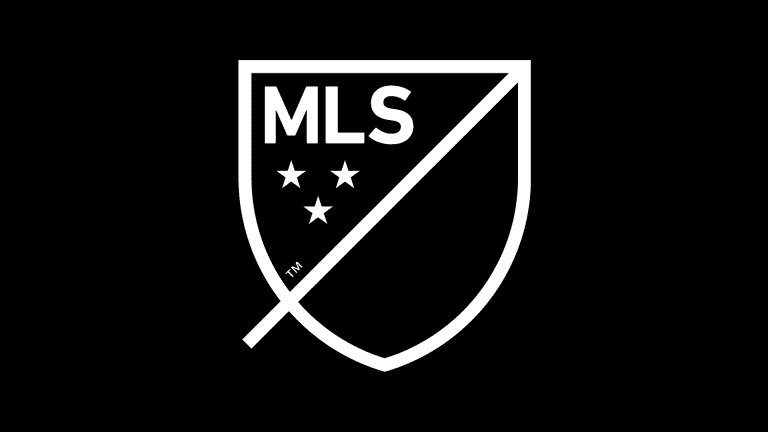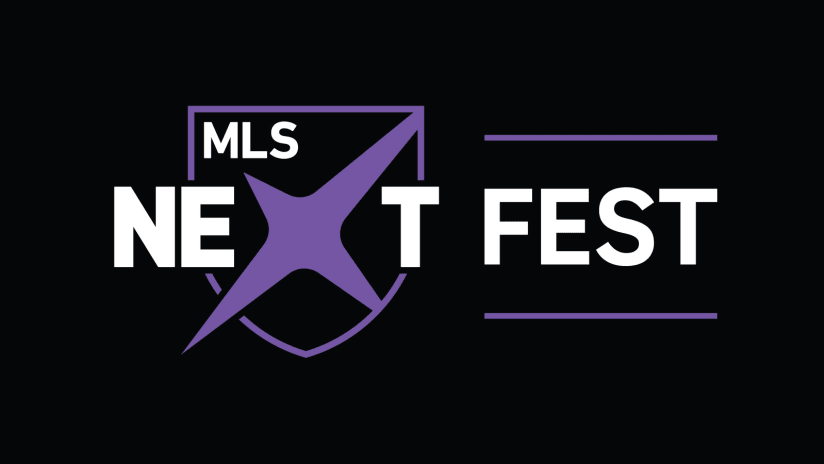New policy, jointly agreed upon by MLS and its players, to put restorative practices at the heart of efforts to eradicate racial and discriminatory incidents from the game – a first in sports
Intercultural awareness trainings, led by former MLS players, to help players across the world’s most diverse league understand and respect each other’s rich cultures

February 15, 2024 – Major League Soccer (MLS) and the Major League Soccer Players Association (MLSPA) today announced a new jointly-aligned Anti-Discrimination Policy to go into effect as the 2024 MLS season begins on February 21. The policy is the first of its kind in professional sports in that it is centered on restorative practices, prioritizing education, prevention, training, and cultural awareness.
MLS, MLSPA, and Black Players for Change (BPC) worked closely together on the development of this policy, as well as on the design of Playing as One: MLS’ new intercultural awareness training program required for all MLS players, head coaches and technical staff.
As the youngest and most diverse league in the world, with players from over 80 nations, it is critical that MLS players are provided the space to express their cultural identities and learn more about the cultures of their teammates to avoid culturally inappropriate and insensitive behavior.
“I want to thank the MLSPA and Black Players for Change for sharing in MLS’ commitment to do the hard and necessary work of reinforcing MLS as a league of choice. Our aim is to inspire and attract the best players in the world by ensuring that we also have the best playing environment in the world. Our collective action to address on-field racial and discriminatory incidents at its root will ensure that as the youngest and most diverse league in the world, we meet this challenge and opportunity with the commensurate level of fortitude, understanding and accountability. Respect for and restoration of relationships is at the heart of this joint approach,” said MLS Chief Engagement and Inclusion Officer Sola Winley.
"MLS is one of the most diverse leagues in the world. Players of various races and nationalities play in our league, and our diverse player pool is one of our greatest strengths. All players deserve to play this game free of discrimination and to have our cultures welcomed, included and respected. This innovative policy is a significant step in building a more inclusive game for all of us and for setting an example for all of sports,” said Earl Edwards, Jr., MLSPA Executive Board Member and Black Players for Change President.
“Player-leaders of the MLSPA and the BPC deserve tremendous credit for raising these issues and for steadfastly working with MLS to bring these changes about,” said Eric Harrington, MLSPA General Counsel. “By embracing culturally inclusive training to prevent discrimination and restorative practices to remedy it when it occurs, we can prevent discrimination and support players who are harmed by it while providing a pathway of healing for everyone.”
"This groundbreaking anti-discrimination policy and intercultural awareness training signifies a commitment to equality, to embracing diversity and a clear declaration that every player, regardless of background has a place and a voice,” said Allen Hopkins Jr, Executive Director for Black Players for Change. "Together, we are architects of transformation and remain relentless in our pursuit of soccer's true potential. Black Players for Change, MLS and the MLSPA know this collective power isn't the endgame; it's the inception of a movement where strength meets intention and solidarity."
Joint Anti-Discrimination Policy
The goal of the new MLS-MLSPA Joint Anti-Discrimination Policy is to eliminate on-field racial and discriminatory incidents by deterring misconduct, achieving both discipline and accountability, and encouraging honesty, growth and education.
The policy is grounded in “restorative practices,” a method that has been proven to lead to increased positive outcomes such as changed behavior, true understanding and fostering of inclusive environments.\[1\] MLS and the MLSPA take racial and discriminatory incidents incredibly seriously, which is why this policy is built on innovative best practices.
Under the new Joint Anti-Discrimination Policy:
- Any players involved in a discriminatory incident will have the opportunity to speak confidentially with a trained facilitator. The facilitator will play a formal role in evaluating the situation and offering a proposed restorative plan when appropriate.
- Restorative plans may include multiple sessions between the alleged offender and the restorative practices facilitator to understand the harm caused and potentially provide the alleged offender an opportunity to make amends with those harmed by his conduct, in addition to education and personalized counseling.
- All allegations will continue to be thoroughly reviewed, which shall include assessments of video and audio footage, a review of the official match report and interviews with relevant witnesses.
- The Commissioner retains the authority to issue discipline if it is determined that a violation occurred.
- A player who accepts responsibility for his mistake and agrees to engage in a restorative plan will face less severe discipline than if he denies committing the act and is found, based on all the evidence, to have been untruthful or misleading.
- There may be occasions when an accused player is placed on paid administrative leave while a review is ongoing. Such placement is not considered discipline and does not mean that the league has determined a violation to have occurred.
- Public statements or announcements in connection with these matters will be limited to confirming:
- When/if the league is reviewing a player’s conduct under this policy.
- When/if a player has been placed on paid administrative leave pending a review of the incident.
- The Commissioner’s determination as to whether a violation occurred.
- The discipline imposed on a player.
- When/if a restorative practices resolution has been reached either in lieu of other discipline or in conjunction with other discipline.
- MLS and the MLSPA are establishing a Policy Advisory Board to continuously discuss the policy’s effectiveness and identify ways to build an even more inclusive league.
This policy was developed through collaboration between league, club, BPC and MLSPA stakeholders over the last several months.
Intercultural Awareness Trainings: Playing As One
As part of MLS’ effort to re-center its anti-discrimination efforts around deeper cultural understanding and inclusion, the league – along with the MLSPA and BPC – have launched a new Inter-Cultural Awareness Training, Playing as One. Trainings have been taking place in-person in the weeks leading up to the 2024 season and are required to be completed by all players, head coaches and technical staff before the season begins.
This comprehensive, restoratively oriented cultural awareness program is being facilitated by former MLS players, who also participated in the curriculum design. A list of former MLS players serving as facilitators can be found **HERE**.
The trainings are focused on helping players and staff understand each other’s cultures and customs and harmful stereotypes, as well as how they expect to be treated on and off the field. Conversations about how to manage competitive stress and control emotions on the field are also a key part of the training. While each locker room discussion is unique, common themes include respect, pride, curiosity, courage, leadership and unity.
Surveys found that nearly 80 percent of those who participated in these trainings between Jan. 16 and Feb. 13 determined the session to be “very” or “extremely” impactful.
\[1\] A 2023 University of Chicago study found that schools that implemented restorative practices saw a 35 percent reduction in student arrests in school and a 15 percent reduction in out-of-school student arrests.











